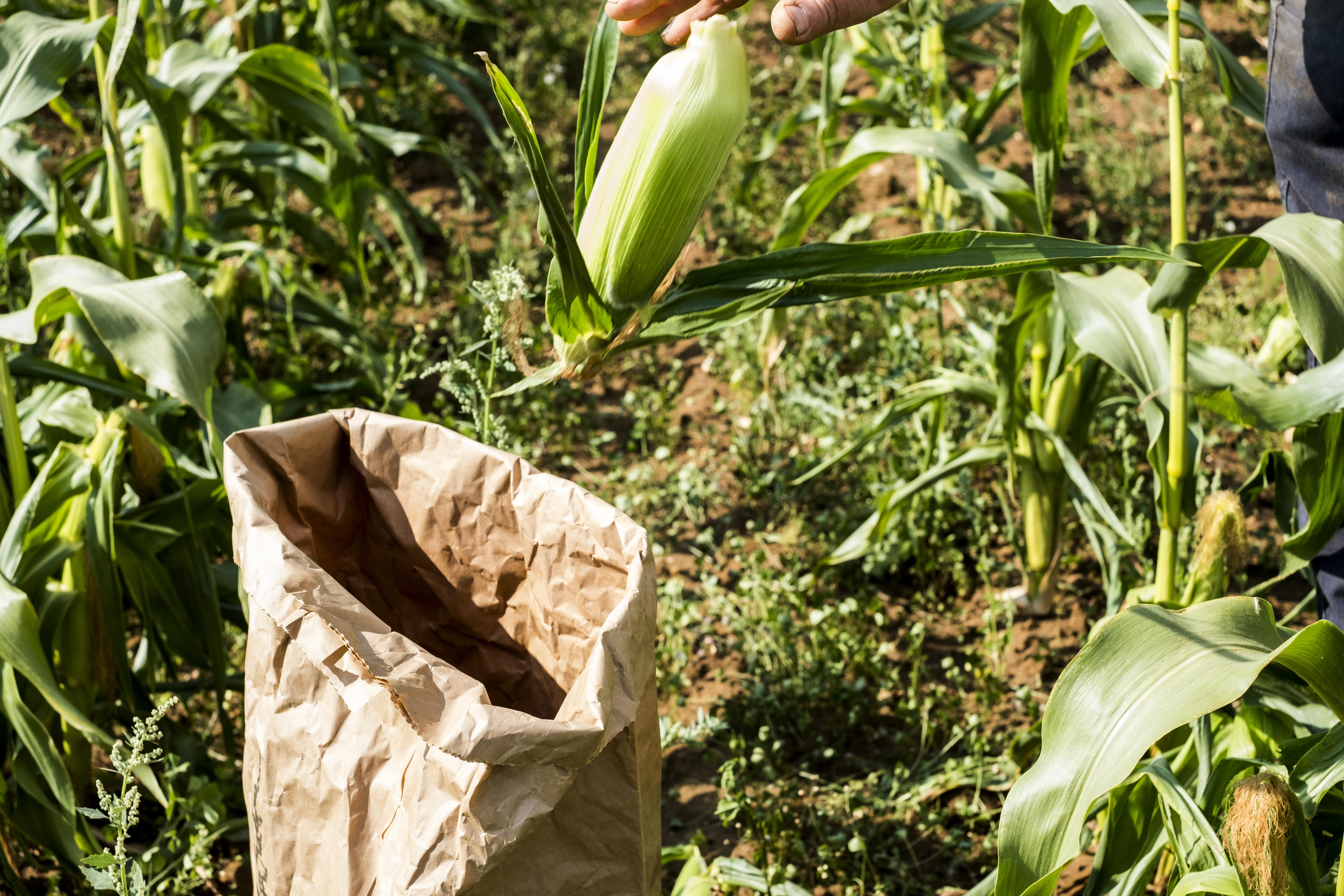12 Money-Saving Hacks To Guide You Through Grocery Shopping
Grocery shopping is an essential part of our weekly routine, yet it often feels like an overwhelming task. With the rising cost of living, finding ways to save money while ensuring that your pantry is stocked with nutritious and delicious food is more important than ever. This article will take you on a journey through 12 ingenious money-saving hacks that will transform your grocery shopping experience. From planning and budgeting to strategic shopping and storage techniques, these methods will not only help you save money but also make your shopping trips more efficient and enjoyable. By the end of this article, you'll be equipped with the knowledge and tools to navigate grocery shopping like a pro, ensuring that you get the best value for your money without compromising on quality or nutrition.
1. The Power of Planning: Crafting the Perfect Shopping List

One of the most effective ways to save money on groceries is by planning your shopping trips meticulously. Start by creating a detailed shopping list that includes everything you need for the week. This list should be based on your meal plan, which should take into account the ingredients you already have at home. By doing this, you avoid purchasing items you don't need, thereby reducing waste and saving money. Meal planning can also help you take advantage of sales and discounts. By planning your meals around what's on sale or in season, you can significantly cut down on your grocery bill. Additionally, a well-thought-out shopping list can help you resist impulse buys, which are often the biggest budget busters. Instead of wandering the aisles aimlessly, you'll have a clear plan of action, making your shopping trips quicker and more efficient.
2. Budgeting Basics: Setting a Realistic Grocery Budget

Setting a realistic grocery budget is crucial for managing your finances effectively. Begin by reviewing your past grocery expenses to get an idea of your spending habits. This will help you set a budget that is both realistic and achievable. Remember to factor in any dietary needs or preferences that may affect your grocery bill, such as organic or specialty items. Once you have a budget in place, stick to it as closely as possible. This may require some discipline, but the financial benefits are well worth the effort. Consider using cash or a prepaid card to pay for groceries, as this can help you stay within your budget. If you find yourself consistently overspending, reevaluate your budget and make adjustments as needed. Over time, you'll develop a better understanding of your spending habits and be able to make more informed decisions.
3. Coupon Clipping: Maximizing Discounts and Deals

Coupons are a tried-and-true method for saving money on groceries. With the rise of digital coupons and apps, it's easier than ever to find and use coupons for the products you love. Start by signing up for loyalty programs at your favorite grocery stores, as these often offer exclusive discounts and promotions. In addition to store-specific coupons, look for manufacturer coupons that can be used at multiple retailers. Many websites and apps aggregate coupons from various sources, making it easy to find deals on the products you need. Be sure to read the fine print on coupons, as some may have restrictions or expiration dates. By combining coupons with sales and discounts, you can maximize your savings and stretch your grocery budget even further.
4. Timing is Everything: Shopping at the Right Time

Believe it or not, the time you choose to shop can have a significant impact on your grocery bill. Many stores offer discounts on perishable items like meat and produce at the end of the day or week, as they need to sell these items before they spoil. By shopping during these times, you can score great deals on fresh products. Additionally, shopping during off-peak hours can help you avoid crowds and long lines, making your shopping experience more pleasant and efficient. Some stores also restock their shelves at specific times, so shopping shortly after restocking can ensure you have access to the freshest products. By being strategic about when you shop, you can take advantage of discounts and enjoy a more streamlined shopping experience.
5. Store Loyalty Programs: Reaping the Rewards

Many grocery stores offer loyalty programs that provide exclusive discounts, promotions, and rewards to frequent shoppers. These programs are often free to join and can lead to significant savings over time. By signing up for loyalty programs at your favorite stores, you can earn points or rewards for every purchase, which can be redeemed for discounts on future shopping trips. In addition to earning rewards, loyalty programs often provide members with access to special promotions and sales. Some programs also offer personalized discounts based on your shopping habits, allowing you to save on the products you buy most frequently. By taking advantage of these programs, you can maximize your savings and make the most of your grocery budget.
6. Buy in Bulk: The Benefits of Stocking Up

Buying in bulk can be a great way to save money on groceries, especially for non-perishable items like grains, pasta, and canned goods. Many stores offer discounts on bulk purchases, allowing you to save money in the long run. However, it's important to be strategic about what you buy in bulk, as purchasing perishable items in large quantities can lead to waste. Before buying in bulk, consider your storage space and the shelf life of the products you're purchasing. Make sure you have enough room to store bulk items and that you'll be able to use them before they expire. By being mindful of these factors, you can take advantage of bulk discounts without wasting money on items you won't use.
7. Embrace Store Brands: Quality at a Lower Price

Store brands, also known as private labels, are often much cheaper than name-brand products, yet they offer comparable quality. Many grocery stores have invested in improving their store brand offerings, providing customers with high-quality products at a fraction of the price. By choosing store brands over name brands, you can save a significant amount of money on your grocery bill. It's important to be open-minded when trying store brands, as you may be pleasantly surprised by their quality. Conduct taste tests with your family to determine which store brand products you enjoy and which ones you prefer to stick with the name brand. Over time, you'll develop a list of go-to store brand products that help you save money without sacrificing quality.
8. Seasonal Shopping: Taking Advantage of In-Season Produce

Shopping for in-season produce is a smart way to save money on groceries while enjoying the freshest and most flavorful fruits and vegetables. In-season produce is often more abundant, leading to lower prices at the grocery store. Additionally, buying in-season produce supports local farmers and reduces the environmental impact of transporting out-of-season produce from other regions. To take advantage of in-season produce, familiarize yourself with the seasonal availability of fruits and vegetables in your area. Plan your meals around these items to enjoy the best flavors and prices. By incorporating seasonal produce into your meal planning, you can enjoy a diverse and nutritious diet while keeping your grocery bill in check.
9. Avoiding Food Waste: Smart Storage Solutions

Food waste is a major contributor to high grocery bills, as spoiled or unused food is essentially money thrown away. To minimize food waste, it's important to implement smart storage solutions that keep your food fresh for as long as possible. Start by organizing your pantry and refrigerator to ensure that older items are used first. This can help prevent forgotten items from going bad before they can be used. Invest in quality storage containers that keep food fresh and make it easy to see what you have on hand. Consider freezing items that you won't be able to use before they spoil, such as bread, meat, and certain fruits and vegetables. By being mindful of food storage, you can reduce waste and make the most of your grocery purchases.
10. DIY Convenience: Making Your Own Snacks and Meals

Pre-packaged snacks and convenience meals can be convenient, but they often come with a hefty price tag. By making your own snacks and meals at home, you can save money and have more control over the ingredients you use. This is especially beneficial for those with dietary restrictions or preferences, as you can tailor recipes to suit your needs. Start by identifying your favorite snacks and meals and finding homemade alternatives. For example, instead of buying pre-packaged granola bars, try making your own using oats, nuts, and dried fruit. Not only will you save money, but you'll also enjoy fresher, healthier options. By embracing DIY convenience, you can enjoy the benefits of store-bought items without the added cost.
11. The Art of Substitution: Finding Affordable Alternatives

Many recipes call for specific ingredients that can be expensive or difficult to find. By learning the art of substitution, you can save money and still enjoy your favorite dishes. For example, if a recipe calls for a specific type of cheese, consider using a more affordable alternative that still provides a similar flavor and texture. Experiment with different ingredients to find substitutions that work for you. This can be a fun and creative process that allows you to put your own spin on classic recipes. By being flexible and open to substitutions, you can save money on groceries without sacrificing taste or quality.
12. Community Resources: Leveraging Food Co-ops and Farmers Markets

Food co-ops and farmers markets are valuable resources for those looking to save money on groceries while supporting local producers. These community-based markets often offer fresh, high-quality produce at competitive prices. By shopping at food co-ops and farmers markets, you can enjoy a more personalized shopping experience and connect with local farmers and artisans. Many food co-ops also offer membership programs that provide additional discounts and benefits to members. Consider joining a co-op in your area to take advantage of these savings. By supporting local markets, you can enjoy fresh, seasonal produce while contributing to the local economy.
Mastering the Grocery Game

Navigating the world of grocery shopping can be challenging, but with the right strategies and mindset, you can master the art of saving money while still enjoying a well-stocked pantry. By implementing the 12 hacks outlined in this article, you'll be well on your way to becoming a savvy shopper who knows how to get the best value for your money. From planning and budgeting to taking advantage of sales and community resources, these tips will help you transform your grocery shopping experience and make the most of your hard-earned dollars. Happy shopping!